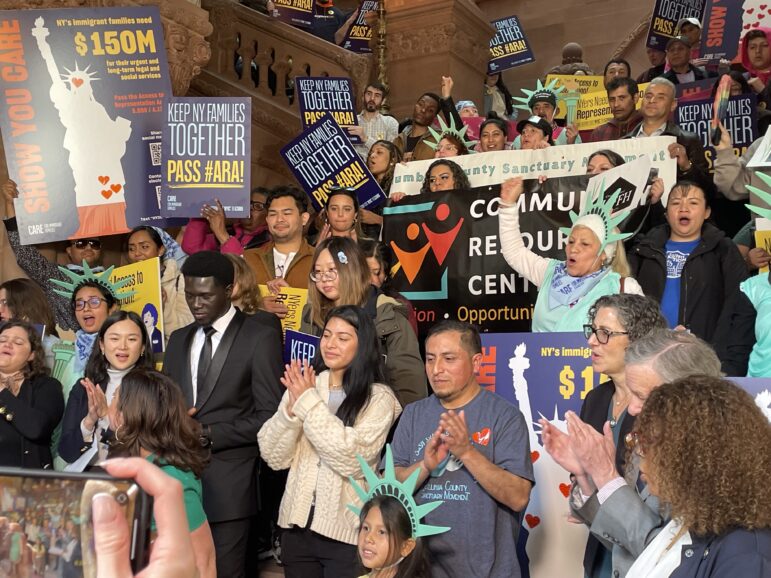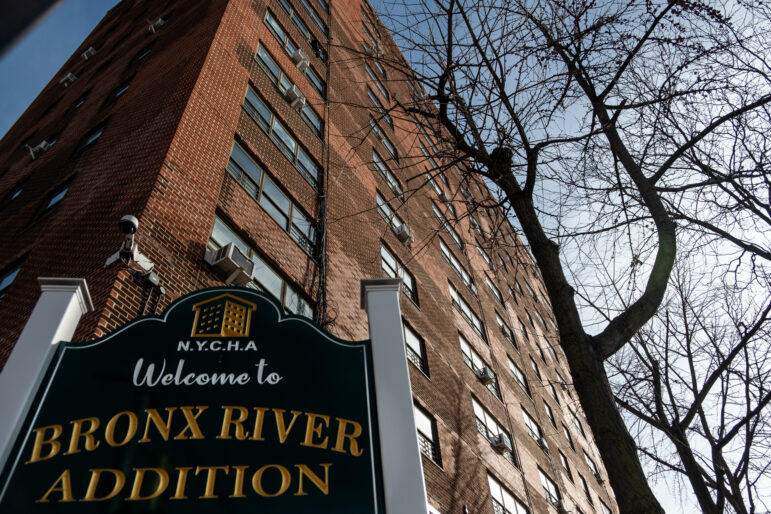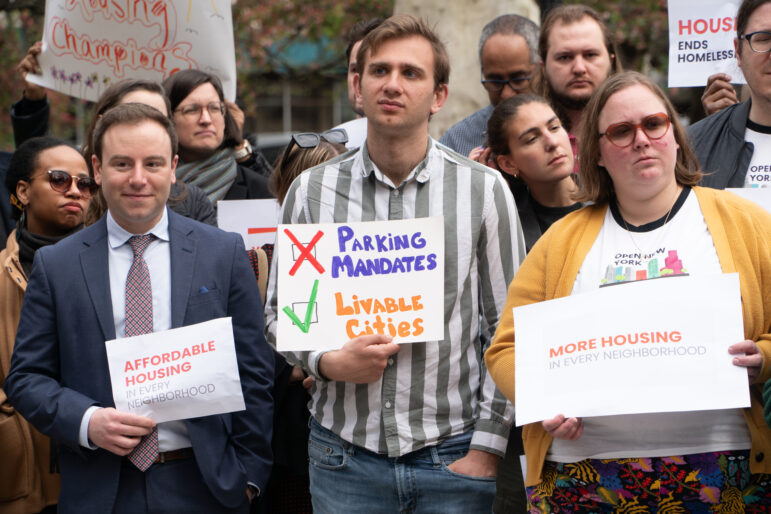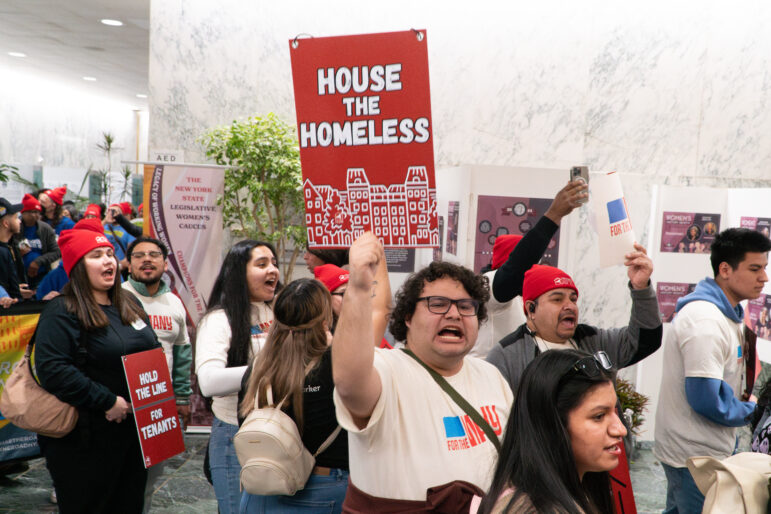A snapshot of the city’s Adult Protective Services program makes for a compelling picture. Its clients are New Yorkers with mental and physical impairments who can’t manage daily tasks and don’t have a relative or friend to handle their care. Its caseload contained more than 6,000 active cases earlier this year, and APS caseworkers are handling anywhere from 27 cases on average on Staten Island, to an average of 42 in Manhattan. Yet caseworkers typically don’t have city-issued cellphones, nor can they use city cars to perform their duties.
Critics of the agency say the difference between the number of cases referred – more than 13,500 in fiscal 2006 – versus the roughly 6,000 active cases is an indication that APS is turning down more cases than it should. And care by APS can be sporadic or inadequate, they say.
Such critics took to City Hall steps last week to demand a focus on this state-mandated program for vulnerable adults. “This has been an issue that is just demanding more attention,” said Public Advocate Betsy Gotbaum, who released a report this winter that rapped APS for a variety of shortfalls based on hundreds of complaints received by Gotbaum’s office and the investigation her staff did in response. It was Gotbaum and City Councilmember Bill de Blasio who held the press conference Thursday to describe problems with APS and demand changes at the agency. That was followed later in the day by a joint hearing of the General Welfare Committee, chaired by de Blasio, and of the Aging Committee, chaired by Councilmember Maria del Carmen Arroyo.
[Gotbaum’s office received an official complaint against APS from physicians in 2005, reported in City Limits here, and the program received another critique in 2002, reported here.]
The hearing was a quiz of agency knowledge for the two top presenters, Robert Doar, commissioner of APS’s parent agency, the Human Resources Administration (HRA), and Lin Saberski, deputy commissioner of APS.
In his testimony, Doar listed reforms the agency has made or is undertaking. A batch of new caseworkers will finish training this month, and that training has been expanded to 30 days, up from 17 days. Manhattan operations, which handle nearly twice as many cases as other boroughs, now consist of two offices rather than one, Doar said.
And he said APS is planning to use staffers other than caseworkers to oversee the so-called heavy-duty cleanings, where a client’s home is cleaned to rid it of vermin or garbage, or to deal with the client’s hoarding. The fact that caseworkers must watch the entire cleaning process has drawn big complaints from Gotbaum and de Blasio.
Doar told the hearing APS is adding cellphones to the agency’s operations. APS also is in the midst of an information technology makeover and is considering adding handheld computers, said Saberski. Critics have complained that workers don’t have laptops and waste time filling out paperwork as a result.
In addition, Saberski said the 32 new caseworker trainees are an addition “that we believe will bring the caseload ratio” back to the state’s standard of 25 cases per worker. Currently, there are about 200 APS caseworkers – for an overall ratio of 30 cases per worker.
Throughout the hearing, councilmembers – also including Gale Brewer of the Upper West Side and Kendall Stewart from central Brooklyn – asked and asked again questions about APS: on caseworker training and morale, caseloads, and collaboration with the city’s other agencies.
For their part, Doar and Saberski maintained a neutral, almost impassive tone during the hearing. Several times, Doar suggested that a lack of federal and state dollars were partly to blame for the agency’s difficulties. “APS…is pretty much all by itself,” he told the councilmembers. “That’s a really big issue. I look for your help and support.”
The APS officials weren’t able to address all of the councilmembers’ questions or requests. When de Blasio asked Doar for a timeline for lowering the number of caseloads per worker, Doar responded, “I want to get back to you on that.” Doar was appointed commissioner of HRA by Mayor Bloomberg in January. Saberski has run APS since 1998.
The cost of any additional reforms to APS, its staff or its technology, is undetermined. The Mayor’s budget allocated $1.6 million for 37 additional APS staffers. That accounts for much of the increase in the annual budget, from $38.5 million for the present fiscal year, to $42 million in FY 08.
Asked about that increase following the press conference, de Blasio said “it’s helpful.” As for how much money is needed to fix the problems at APS, he said, “I don’t have an exact figure.”
“To give [caseworkers] cellphones is not a big cost. To give people better training is not a big cost,” De Blasio said. He added, “I’m not sure a lot of this has to be costly.”








